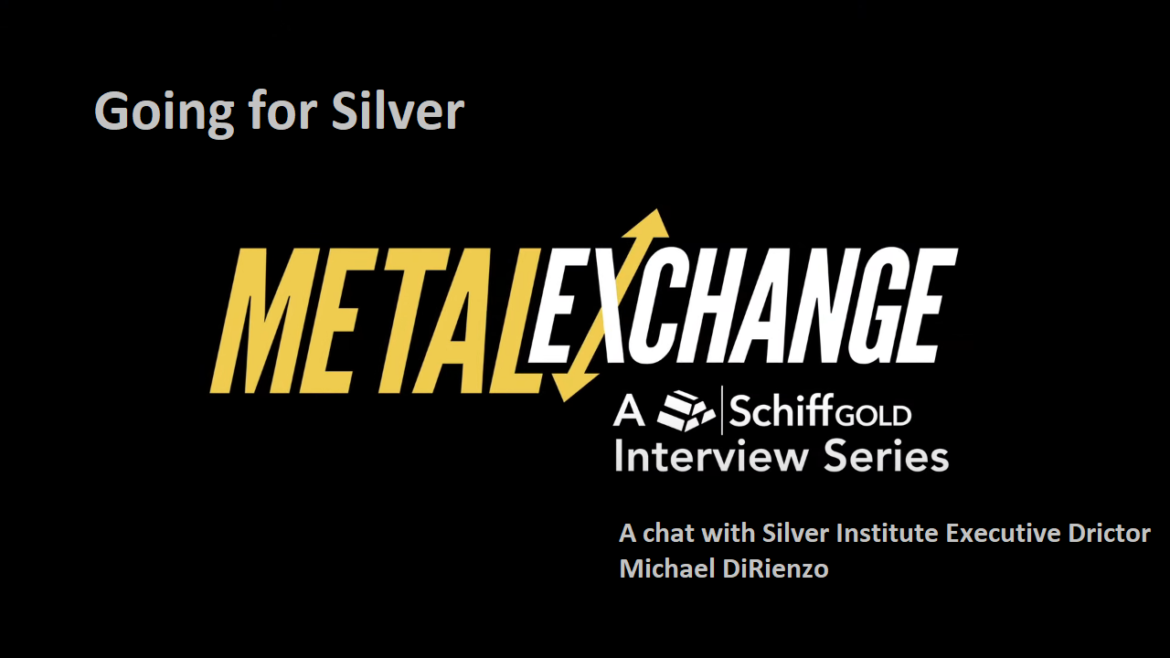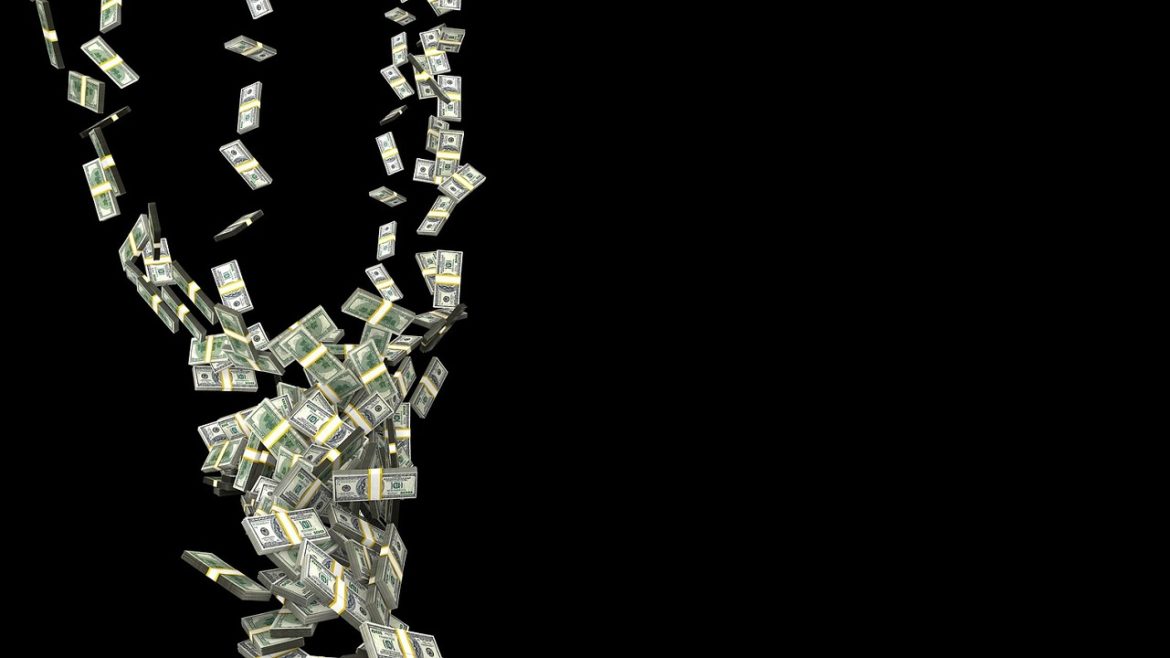Gold has all the potential to go unprecedentedly high. But silver will be gold on
Site:
Precious metals news
 Federal Taxes Set Record Through July; Real Federal Spending up 47.7% From Pre-Pandemic High
Federal Taxes Set Record Through July; Real Federal Spending up 47.7% From Pre-Pandemic HighAug 12, 2021 - 09:36:23 PDT
Federal spending in the first ten months of this fiscal year was the second highest it has ever been (in constant July 2021 dollars).
Aug 12, 2021 - 09:33:14 PDT
In FY2020, the deficit hit a record $3.1 trillion. So far into FY2021, the deficit is at $2.2 trillion. The national debt is approaching $29 trillion for the first time in U.S. history.
The velocity of currency has slumped, but what happens when it reverses, and how can you prepare? Join Mike Maloney and Ronnie Stoeferle as they discuss the latest ‘In Gold We Trust’ report.
President Biden claims that the Democrats' $3.5 trillion spending plan won't trigger inflation - a key objection from Republicans.
The Hindenburg Omen is sending another warning signal regarding stock market breadth.
Government shields its employees and beneficiaries, but not ordinary workers, from higher prices.
Climate shocks in Brazil and shipping bottlenecks have pushed the price of coffee beans sharply higher. Starbucks says it won’t be affected for more than a year, but small cafes can’t hold off that long.
Investors poured $705 billion into exchange-traded funds through the first seven months of the year, pushing 2021’s world-wide tally to a record $9.1 trillion.
When it comes to precious metals investing, gold tends to hog the spotlight. But silver is also important to investors, both as an industrial and a monetary metal.In this Gold Exchange interview, host Mike Maharrey chats with Silver Institute Executive Director Michael DiRienzo about the current state of the silver market and where its going in the future.
So sorry, America, but your central bank is certifiably insane, and it's not going to magically work out.
The Federal Reserve's new approach to monetary policy, meant to provide a clear path for the central bank to reach its inflation target, has led for now to a conflicting array of interpretations as officials turn perhaps sooner than anticipated to a debate about when to raise interest rates. That decision seemed far away last December when the Fed laid out...
A measure of U.S. financial liquidity whose declines foreshadowed two of the decade’s worst equity routs is flashing alarms even before the Federal Reserve embarks on its planned winding down of asset purchases. The signal is obscure, but has sent meaningful signs in the past. Roughly speaking, it’s the gap between the rates of growth in money supply and...
 Initial Jobless Claims Stagnate For 12th Straight Week, Over 12 Million American Remain On The Dole
Initial Jobless Claims Stagnate For 12th Straight Week, Over 12 Million American Remain On The DoleAug 12, 2021 - 05:47:03 PDT
Having stagnated around the 400k level for 11 weeks - still around twice the pre-COVID-lockdown norms - analysts expected a modest drop (improvement) in initial jobless claims last week, and were right as claims dropped back near a post-COVID-lockdown low of 375k...
After soaring to a record high 7.3% YoY in June, PPI was expected (like Core CPI) to moderate modestly in July to 'just' +7.2% YoY. They were wildly wrong as July's PPI soared to a new record +7.8% YoY (up 1.0% MoM)...
 LA To Require Vaccination For Indoor Spaces, Including Restaurants, Bars, Gyms, Stores
LA To Require Vaccination For Indoor Spaces, Including Restaurants, Bars, Gyms, StoresAug 12, 2021 - 05:38:07 PDT
KTLA News reported Wednesday that the city council has unanimously voted to introduce vaccination requirements in order to enter indoor spaces, including restaurants, bars, gyms and even stores.
Japanese wholesale prices rose in July at their fastest annual pace in 13 years, data showed on Thursday, a sign that global commodity inflation and a weak yen were pushing up raw material import costs for a broad range of goods.
The July Consumer Price Index (CPI) data came out this week. For the first time, the numbers were in line with expectations, leading many mainstream pundits to declare "transitory" inflation is already starting to cool down. Peter Schiff broke down the report in his podcast. He said inflation is far from cooling off. In fact, when it comes to rising prices, you haven't seen anything yet.
China released a five-year blueprint calling for greater regulation of vast parts of the economy, providing a sweeping framework for the broader crackdown on key industries that has left investors reeling. The document, jointly issued late Wednesday by the State Council and the Communist Party’s Central Committee, said authorities would “actively” work on...
The U.S. economy is growing at a robust pace and the labor market is rebounding, signaling it is nearly time for the Federal Reserve to start withdrawing its support, several U.S. central bank officials said on Wednesday.
President Joe Biden said on Wednesday that his administration is working to relieve bottlenecks threatening the economic recovery and trusts the Federal Reserve to take any steps that may be needed to rein in prices.



























